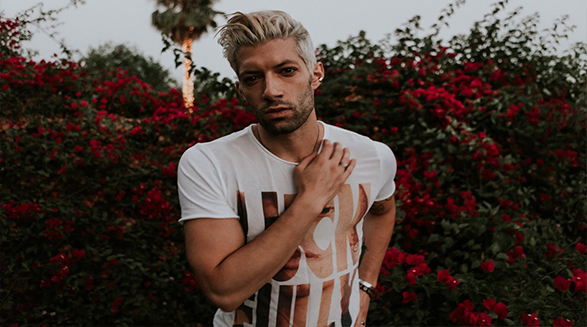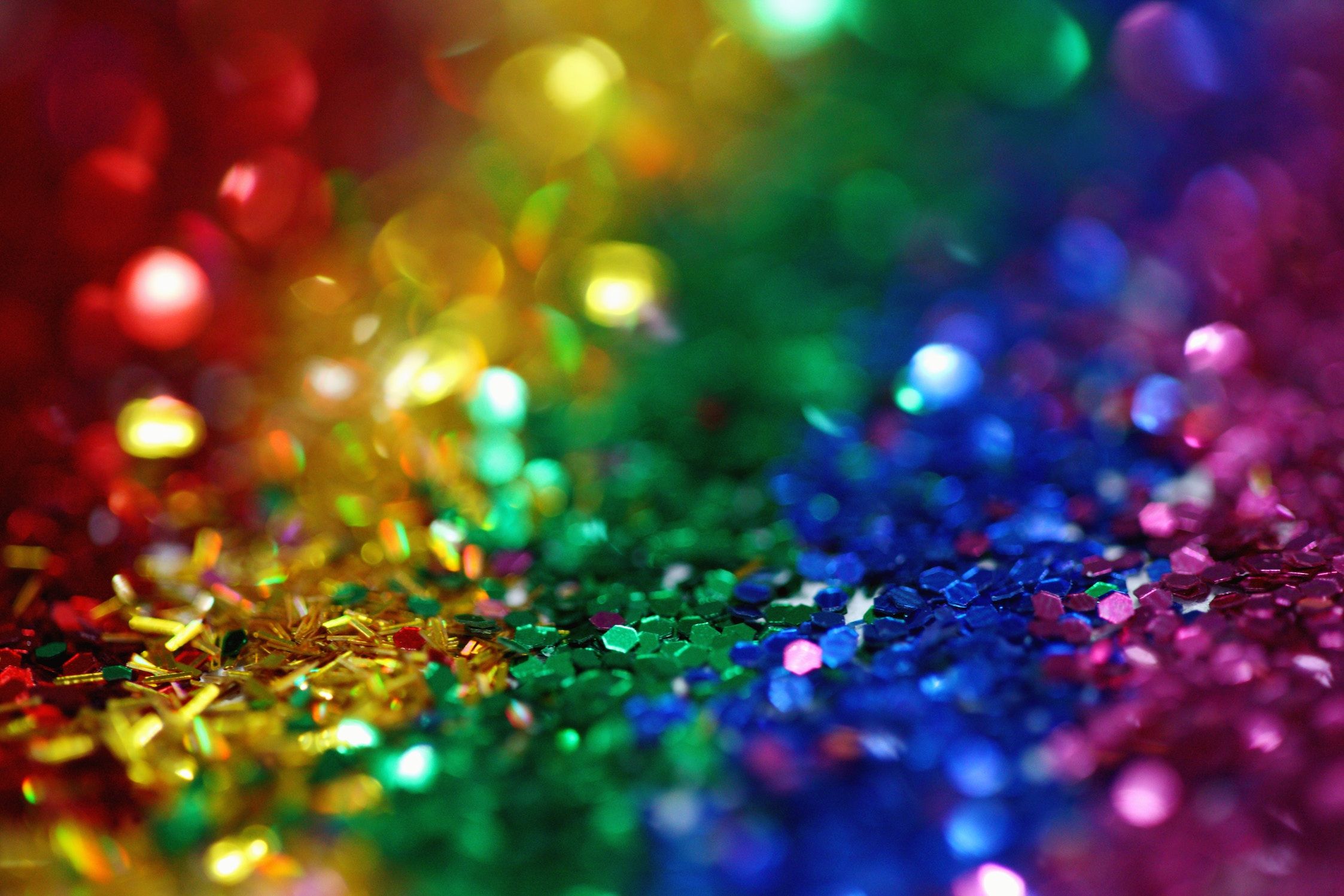Writer, Actor, Comedian, and online personality R.J. Aguiar on what it is like to be a bisexual man
I didn’t meet my first out bisexual person until I was a freshman in college. Let that sink in for a second.
I went 18 years on this planet without meeting the first openly bi person. Notice how I said “openly”. Chances are that I met plenty of bi people all throughout my childhood, just from a statistical standpoint. But it wasn’t until I was a legal adult that I finally met someone who actually identified as such. And as someone who would later come out as bisexual himself, this was a pretty huge moment for me. Imagine going through your entire childhood without meeting someone who shares your same identity. Imagine what it would feel like to spend so many of your formative years without experiencing that kind of validation. Imagine trying to accept such an integral part of who you are without anyone else telling you that it’s okay…that you’re not confused…that you’re not indecisive…you’re not just trying to seek attention…you’re not just going through a phase…that everything you’re feeling and experiencing is valid and not shameful.
It’s hard enough trying to make sense of your identity when you don’t really have words to describe what’s going on. It’s even worse when your only exposure to your own identity is purely through negativity and shame. I had heard the word “Bi’ a handful of times throughout middle and high school. Usually in the context of sentences like “so and so says she’s might be bi, she’s such a slut” or “she says she’s a little bi, but she’s only doing it for attention”. It’s worth mentioning that these conversations only ever centred around girls. Any attempt at men identifying as such was immediately dismissed as a gay boy’s attempt at being in denial. Add to this the fact that I grew up in the Catholic Church, which added so much oxygen to the “shame and confusion” fire. Luckily for me, my church didn’t preach much of the “fire and brimstone” teaching of same-sex attraction that many others spew. Instead, it perpetuated what I like to call “soft homophobia”, which ended up being especially tricky for me to navigate. Soft homophobia goes a little something like this: “You can’t necessarily help it if you have gay thoughts, but you can help whether or not you act on them. And if you do act on them, that’s shameful and wrong. You can always choose what impulses to act on.”
“Imagine going through your entire childhood without meeting someone who shares your same identity”
And that was the problem. In my case, they kind of had a point. I was kind of being pulled in two different directions, with my same-sex attraction pulling me in one direction and my opposite-sex attraction pulling me in another. Of course, my church wasn’t the only voice telling me that I had to pick one. In fact, pretty much everyone and everything was telling me that I had to pick one or the other. Believe me, I tried to. Despite the crushes I developed on girls and boys growing up, I only allowed myself to pursue girls. I tried and tried in vain to ignore any same-sex attraction, hoping that, one day, it would just magically disappear the way so many people told me that it would. But years and years passed and that day never came. It seemed like I was always going to be pulled in two directions at once.
This is why it was so pivotal when I finally met someone who had made it a point to not “pick a side”. I had been told time and time again that it could only be one or the other, that people could be gay or they could be straight but never “both”. And yet here was someone who refused to play by those rules, and the universe hadn’t imploded. She was the first person who opened my eyes to the fact that bisexuality doesn’t mean that someone is half gay and half straight. The person you date isn’t going to change the fact that you’re always potentially attracted to more than one gender. And just because you are attracted to multiple genders doesn’t mean you won’t still be able to settle down and fall in love. It just means that the pool of potential applicants is a bit larger. These revelations were nothing short of earth-shattering to me. Part of me had always wanted that much to be true all along, but literally no one up until that point had told me that it was okay. The more we talked, the more her lessons on bisexuality resonated with me and the more my questioning and turmoil gave way to acceptance. It didn’t take long after that before I was finally able to say to myself “I’m bi, and that’s okay.”
[full-width-figure image=”https://dtl-staging.org/2020/wp-content/uploads/2016/09/O69A1114.jpg”]
I’d love to say that this marked the end of my journey towards being an out and proud bi man, but I’d be lying. As many an LGBT+ person will tell you, self-acceptance is often just the first hurdle. Even if I was starting to accept myself, that didn’t mean that everyone else would feel the same way. There was (and still is) Biphobia everywhere. Worse yet, it wasn’t just coming from straight people. As counterintuitive and idiotic as it may sound, I encountered many a gay and lesbian person in LGBT spaces that would openly dismiss and express animosity towards bi/pan/otherwise fluid people. Opening up about my identity would mean putting up with stupidity and ridicule from both sides, which was something I wasn’t ready to handle. “Besides,” I argued to myself, “unless I’m dating someone, it’s not really any of their business in the first place. Why open up about this to everyone I meet just so they can question and doubt every relationship I have from then on?”
“I tried and tried in vain to ignore any same-sex attraction, hoping that, one day, it would just magically disappear”
Luckily, shortly thereafter, I started dating someone who was incredibly chill about the fact that I was bi. The thing was…he was a guy. So the time came to make a choice: either come clean to people or let them draw their own conclusions. I only chose the first option for a very select few close family and friends, and the second one for pretty much anyone else. As a result, a lot of people kept mislabeling me as gay. Every time they did, I had to convince myself that it was easier letting it go than correcting them and possibly having to deal with the ensuing pushback. That method worked for a few years, until one day, I got an anonymous message on Tumblr that put me over the edge. I decided to take to YouTube and shut down everyone who tried to shove me in a box where I didn’t belong.
Little did I know that the response my little rant would be absolutely massive. And it was through the massive response I got to that video (and to all the other ones I’ve made about bisexuality since then) that I discovered just how important it is to live your truth. I’m not going to sit here and say that Closeted Me was wrong and that I never experience any Biphobia or hate, because that would be a lie. But what I didn’t realise previously is that coming out would give me access to an entire community that I didn’t even know about before. I’m not just talking about organisations like BiNetUSA, the LA Bi Task Force, AmBi, the BiCast, and other great Bi organisations – I’m also just talking about the thousands of people who have flooded to the videos and my channel to say “hey, I’m bi too!” Speaking from experience, being closeted can be a very isolating experience. So finding your community can be an incredible relief, even if it is mostly online. It’s that feeling I got when I met my first bi person but multiplied by a hundred. Better yet, I get to be that person to literally thousands of others, the one who says “who you are and what you’re experiencing is valid”.
“So if you’re bi, pan, omnisexual, polysexual, fluid, or any other label under the Bi+ umbrella, fret not. You’re not alone”
The funny thing is, I’m still learning a lot about bisexuality. You’d think that the concept would be as simple as “being attracted to more than one gender”, and it sort of is. But there’s also all sorts of history and heritages and facts and figures. For instance, did you know that the organiser of the first Gay Pride parade was a bi woman? Or that Bi+ people experience higher instances of sexual assault and intimate partner violence than their gay and straight counterparts? I won’t bore you with a course; if you’re really interested, there are plenty of resources out there written by far more qualified people. Point is, I’m finding out all of this new information about my own identity, which is something I never even thought would be possible all those years ago. Oh, and I’m also headed to the White House in late September to participate in a Bisexual Round Table. How’s that for a happy ending?
So if you’re bi, pan, omnisexual, polysexual, fluid, or any other label under the Bi+ umbrella, fret not. You’re not alone. Same goes if you’re gay or lesbian or trans or ace. You don’t have to come out if you think it might put you at risk. But know that, if and when you choose to, there will be others out there who share your same identity. If you don’t really know how you want to identify, that’s fine. There’s no law that says you have to pick a label at any time. If you come across one that feels like it fits, great! If not, who cares? And if you choose one label and then later find another one that fits better, then that’s fine too! But no matter how you identify, realise that it’s not anyone’s responsibility to live their life in a way that makes sense to you. Chances are that, at some point in your life, you’re going to come across someone who does something or has an identity that makes no sense to you. That’s okay. There’s no requirement that says their life and their choices have to make sense to you. You can cause real damage by ridiculing and/or dismissing them, and for what? It’s their life and their existence compared to your brief interaction with them. It costs you nothing to simply accept them, and yet it can mean the world to that person. And if you need any proof as to how meaningful it can be, let me serve as your example.
Written by RJ Aguiar
Follow RJ on YouTube
Sorry, the comment form is closed at this time.














Pingback: BISEXUAL MUSIC – #AskABiGuy, Part 7 | More 5G